Interspecies Lovin’: How Mass Effect 2 Championed Diversity, Whether You Like It Or Not
 Here’s a question for you. Do you think video games have a responsibility to campaign for a better world?
Here’s a question for you. Do you think video games have a responsibility to campaign for a better world?
Your answer probably determines whether or not you think that the lack of a homosexual romance option for Shepherd in Bioware’s Mass Effect 2 was a disappointing step backwards for galactic diversity or just a feature of the game’s beautifully-rendered landscape.
The pedants amongst you will be quick to point out that Yeoman Kelly Chambers and the Asari ladies Morinth and Samara are all romance options for a Shepherd of either gender. This is true. However, you don’t win an achievement for getting freaky with them, so their love is worth less than that of the heterosexual characters Miranda, Jack, Tali, Jacob, Garrus and Thane, who all increase your gamerscore when you get them into bed.
This grave disparity has long been cause for concern across the internet, so perhaps it’s time we got to the bottom of what Mass Effect’s “Paramour” achievement really means for video game diversity, equality and narrative.
In general, all forms of art or entertainment lose their power to delight and move us as soon as they are lumbered with a moral. Whilst video games could definitely stand to be more diverse in terms of race, gender and sexuality, the industry’s current reluctance to stray too far from the straight white male enclosure is a missed artistic opportunity rather than evidence of a sinister refusal to acknowledge other demographics.
Of course games should explore alternative narratives with unconventional protagonists, but not at the expense of a good story or high production values. It’s not that games are not capable of communicating complex ideas (quite the contrary), it’s just that they do so far more effectively when they’re telling a great story than when they are bludgeoning you with a message.
There is a very fine line between a game whose narrative incidents are so well executed that they make you examine your opinion on something (Call of Duty: Modern Warfare 2’s airport scene made many re-examine their attitudes to game violence, for example), and a game whose single-minded purpose is to harass you into agreeing with its politics (hello, Super Tofu Boy).
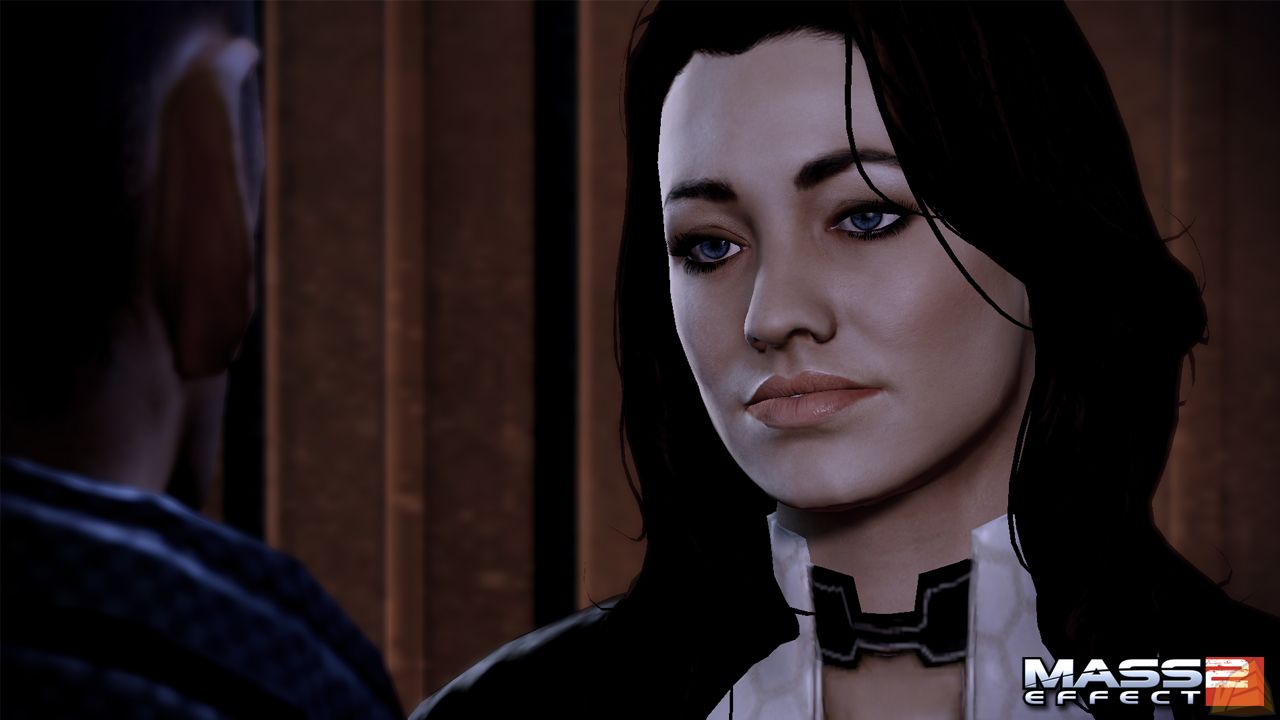
Although I appreciate that many were disappointed by BioWare’s omission of a homosexual relationship from Mass Effect 2, I think that a criticism of the game on those terms is a failure to recognise the scale of its vast narrative strengths.
It’s also rather unfair that had BioWare been less adventurous with the romance options in their previous games – Mass Effect, Jade Empire and Dragon Age: Origins all allowed the player to engage in a homosexual relationship – no-one would have batted an eyelid at Mass Effect 2’s heterosexual line-up. I mean, no-one has yet criticised Gears of War‘s Marcus and Dom for not spending the long cold nights in each other’s burly arms.
Anyway, what the game’s critics failed to appreciate was the fact that making the inclusion of homosexual content compulsory would be as artistically restrictive as a blanket ban. Mass Effect 2’s project lead Casey Hudson later explained (in an interview for 1up.com) that giving a male Shepherd access to the male romance options and vice versa would have meant compromising the game’s high production values:
Everything new that we add still requires extra content. Some people might argue in a case like that you could just have the same kinds of scenes that just work with different characters. But we wouldn’t really want to have it that way. You’d want to take a proper approach to designing those scenes; otherwise you’d see the same scene. […] We had to draw the line in terms of how much content we make.
If, as Hudson suggests, resource constraints would have reduced gay relationships in the game to carbon-copies of the straight ones with different pronouns, then their omission is justifiable, at least from an artistic point of view. BioWare’s decisions eventually produced a game with a vast, well-told story composed of multiple complex plot threads. Moreover, the romantic subplots that made the cut were given added emotional weight by the political tensions between the various alien races.
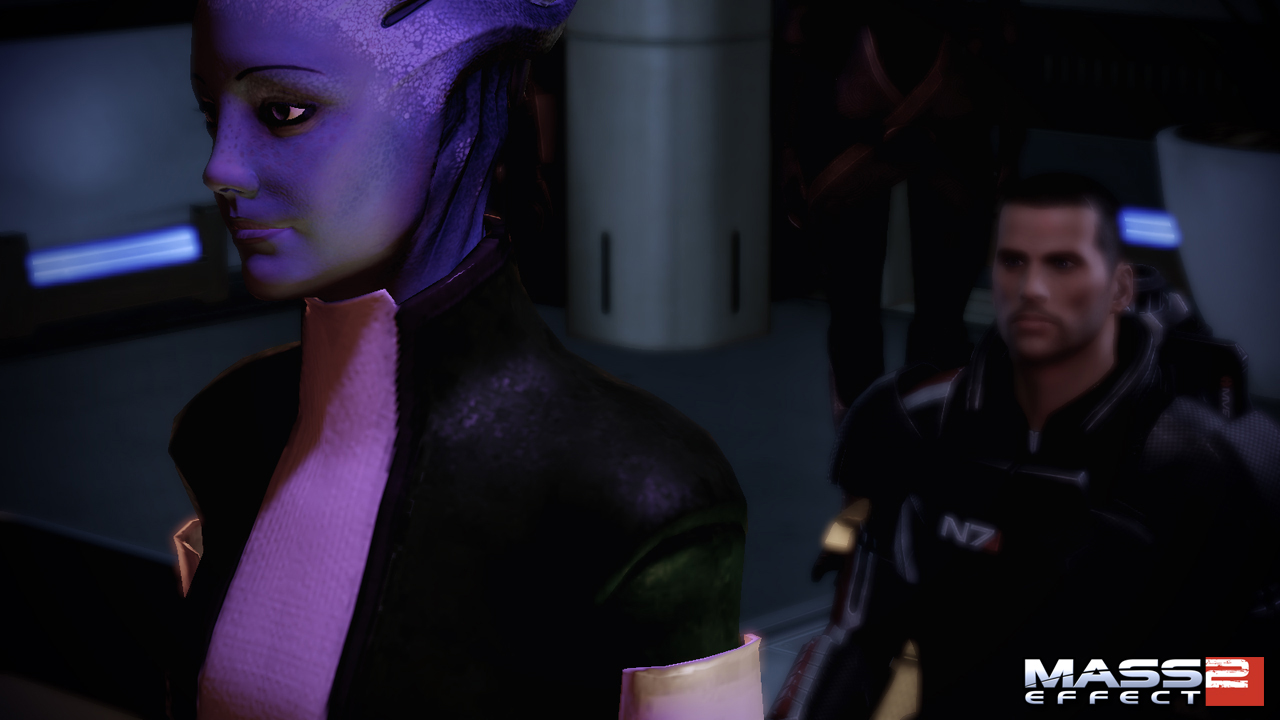
But there are those who disagree, citing the omission of gay content from the game as cause for extreme concern.
The prevailing sentiment can be largely summarised by this passage from Brad Gallaway’s article “Mass Effect 2 and the Lack of Homosexuality in Space” on gamecritics.com:
“I find it somewhat hypocritical that having a homosexual relationship with someone of the same species is not allowed when so many of the “acceptable” options are with aliens – who may or may not actually be as male of female as they appear. After all, who’s to say what the definition of a Turian male is, or what a Quarian female has in her pants?”
The first thing that strikes me about this accusation is that Gallaway is judging the Mass Effect 2 universe using criteria that apply to his own.
Although the events in the game take place in our own galaxy, they occur hundreds of years in the future, so galactic concerns have moved on. Tensions are now no longer between factions of humanity, but between human beings and other alien races. The original Mass Effect saw not only the first human appointed to the rank of Spectre, but also the first human admitted to the galactic council. These controversial events contributed to the anti-human prejudice that was already rife amongst the older and more powerful races in the galaxy.
Because of these tensions, many humans developed a nasty xenophobic streak which manifested itself in the rising popularity of Cerberus, the human-survivalist parliamentary group which resurrects Shepherd at the beginning of Mass Effect 2. Committed to advancing humanity’s ascension at any cost, Cerberus views the impact of their activities on other races as mere collateral damage.
It is heartening, therefore, that even under such racially-charged circumstances, Shepherd can still find love in the arms of an alien.
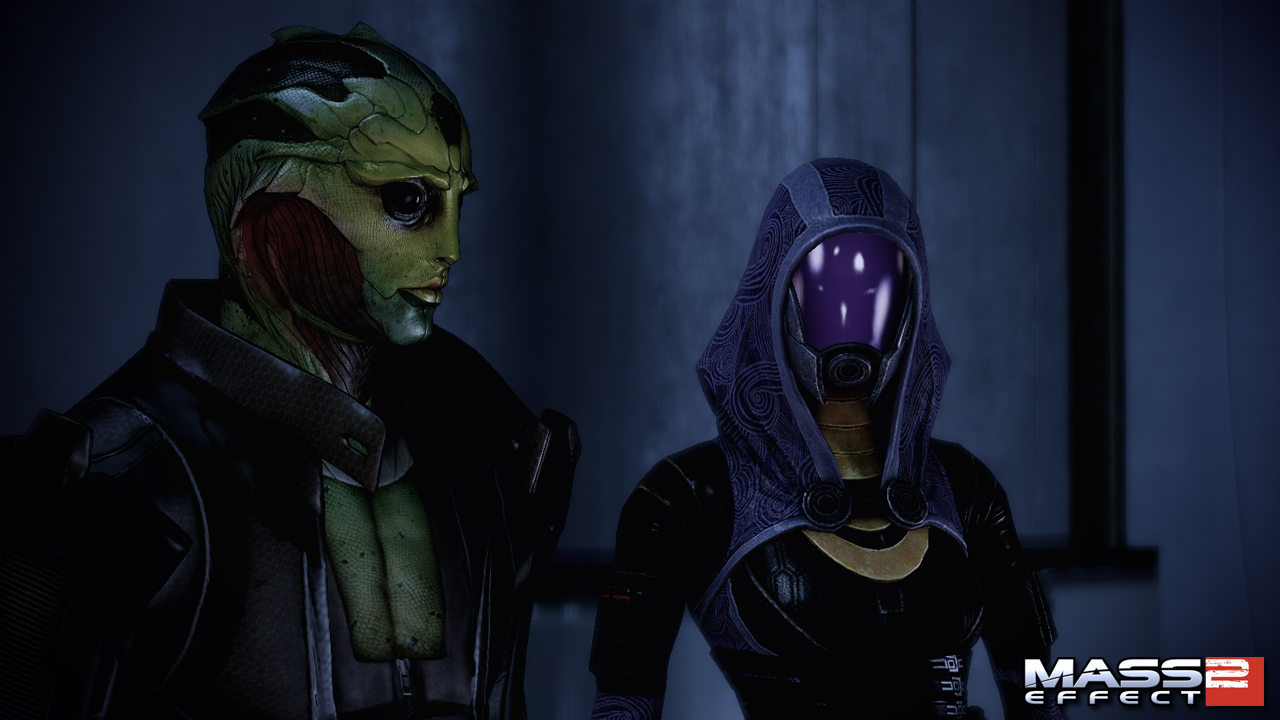
Gallaway’s accusation that it is “hypocritical” for Shepherd to indulge in an interspecies relationship and not in a homosexual relationship is flawed on a number of levels.
Firstly, by referring to the alien relationships as “acceptable” (with quote marks, no less) within the confines of the game, he implies that a homosexual relationship is somehow “unacceptable”, thus endowing the Normandy crew’s sexual preferences with an ideological weight that they did nothing to deserve.
The reason a female Shepherd can’t get off with the foxy Miranda Lawson is simply that Miranda doesn’t fancy her. It’s not that Miranda is homophobic, she just doesn’t swing that way. Likewise, the chiselled Jacob Taylor doesn’t want to cuddle up with a dude. You can’t accuse someone of being racist/sexist/homophobic just because they don’t fancy you. I mean, my female Shepherd happened to think the Illusive Man was a bit of a dish, but President Bartlet the leader of Cerberus was having none of it. And he loves humans!
Secondly, I wonder why Gallaway doesn’t pick up on the fact that Shepherd cannot seduce Flight Navigator Jeff “Joker” Moreau. Does he think that Joker’s disability makes him a neglible romance option? Given the fact that Gallaway later goes on to criticise Shepherd’s potential alien liaisons as “unhealthy”, it’s a distinct possibility. Joker’s fragile bone condition would make a romp with the muscular Shepherd as dangerous for him as a tussle with a Turian might be for a human.
I’m not accusing Gallaway of being insensitive towards people with disabilities, but if you follow his argument through to its logical conclusion, it seems strange that he is so concerned with the lack of homosexual options and not with the fact that Joker’s most significant relationship is with the ship’s computer (voiced by Tricia “Number Six” Helfer, if you’re interested).

The article continues by outlining the aspects of interspecies sex which he finds repugnant:
“These aliens, although humanoid in shape for the most part, have bizarre mouthparts, things that may or may not be gills, strangely-textured skin, and who knows what underneath their armor, and these are the “acceptable” options?”
What’s interesting about this accusation is how closely it resembles homophobic hysteria about the “unnatural” aspects of gay or lesbian sex.
Again, Gallaway has fallen into the trap of judging an alternative (and imaginary) universe on his own terms. Of course human beings on planet Earth in the year 2010 think the idea of having sex with another species is a poor idea. We have yet to encounter another species with whom we can empathise and share conversations, a species with whom we can truly fall in love and who can love us back.
But that’s not the case for Commander Shepherd, hundreds of years into the future.
A female Shepherd can embark on a touching – if awkward – affair with ex-cop Garrus Vakarian. Garrus is a Turian, an alien species covered with a thick exoskeleton. Should she decide to take things further, the Normandy‘s Doctor Mordin Solus (himself a Salarian) offers her some practical advice in his distinctive clipped tones:
“Sexual activity normal stress relief for humans and Turians. Still, recommend caution, warn of chafing. […] Turians based on dextro-amino acids, human ingestion of tissue could provoke allergic reactions. Anaphalactic shock possible, so don’t, ahem, ingest.”
Sure, it’s not especially romantic to have to worry about “chafing”, but Shepherd and Garrus are hardly the first consenting adults in the galaxy who have had to overcome the odd mechanical hurdle when consummating their relationship. The fact that they care about each other enough to try speaks volumes.
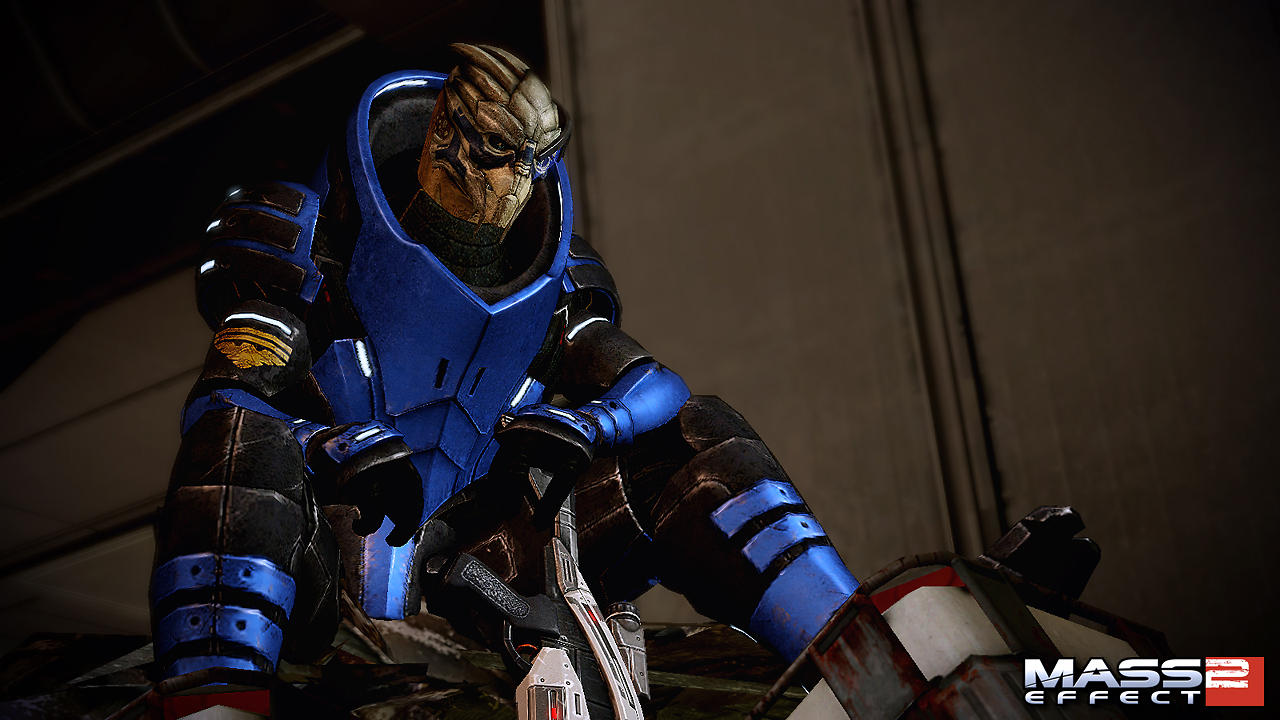
Shepherd is not put off by Garrus’ dextro-amino acids (or whatever). Neither is he or she worried about Thane’s scaly skin or the sticky reaction that Tali experiences after a tumble with Shepherd’s male form. He or she has much wider concerns, and if we as gamers care about the future of video game stories, then so should we.
The Normandy is crewed by a group of individuals with disparate backgrounds and frequently conflicting beliefs. Funded by a shadowy organisation with questionable goals, the crew are nevertheless bound together by their loyalty to a leader they all believe in. Although Shepherd’s behaviour and motives are largely in the hands of the player, BioWare have nevertheless created a universe in which a lone human can transcend the racial boundaries that have been in place for millennia. Unperturbed by the practical difficulties of falling in love with an alien, Shepherd is free to boldly go where only a few brave souls have gone before, providing that the partner in question returns his or her feelings.
Mass Effect 2 does not preach equality. The player is as capable of creating a xenophobic, racist and abusive Shepherd as they are of creating a progressive and liberal one. There are no penalties for taking Shepherd down a darker path, just different and equally interesting outcomes. The fact that you are given the option is what makes the game so special.
As for the specific accusation that the game’s failure to include a homosexual romance option is a failure for diversity, it is misdirected. The fact that BioWare had to compromise one kind of relationship for another is perhaps a pity, but it resulted in some of the most original romantic sequences ever to appear in a video game.
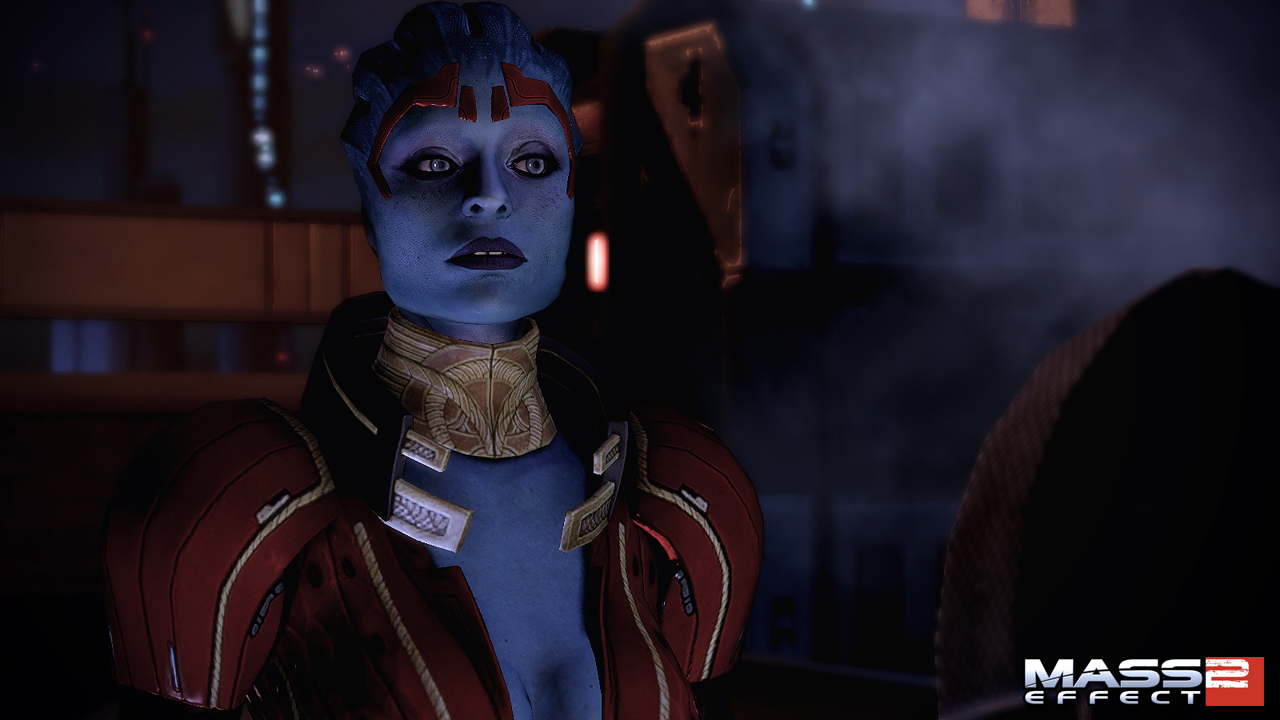
By all means lament the lack of diversity in video games and rail against homophobia wherever you find it. But your ire is best directed at thoughtless portrayals of gay characters or the nasty slurs hurled across online Halo death matches.
Although it is both admirable and encouraging that so many people felt moved to discuss what they saw as a severe omission on BioWare’s part, in doing so they neglected to recognise the game for what it was, an imaginative journey through a turbulent universe in which the player is free to disregard taboos and outdated notions of who is and isn’t acceptable to love.
If video games are to be taken seriously as an art form, we must allow their creators the freedom to tell the stories that they are capable of. There are many excellent gay video game characters, and we will see many more as the medium matures, providing we allow them the space to grow.
By criticising a game that tells so many wonderful stories, we run the risk of stifling the creativity of future games as writers and designers fall over themselves to keep everyone happy.
Diversity in games is making tentative steps forward all the time, but it can’t take root on anything less than the fertile ground of rich narratives.




